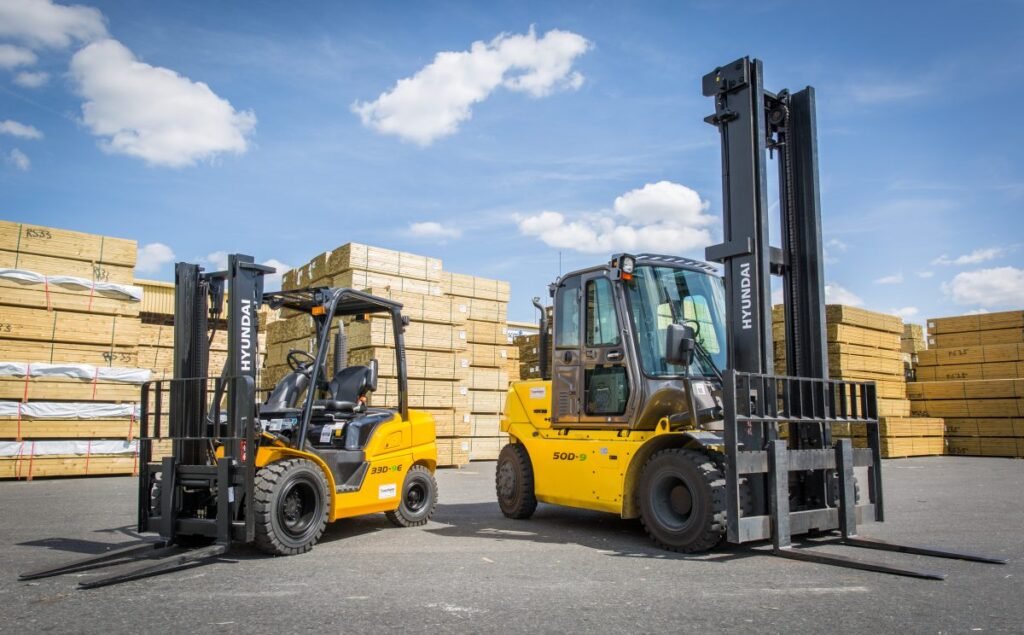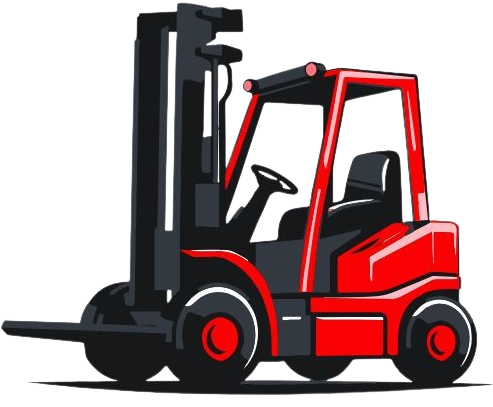Forklift Truck Rental: Revolutionizing Industrial Operations
Imagine a bustling warehouse filled with towering shelves, crates, and pallets stacked to the ceiling. In this world of organized chaos, one mighty machine stands out—the forklift truck. From lifting heavy loads to maneuvering through tight spaces with precision, forklifts are the unsung heroes of industrial settings. Let’s dive into the world of forklift trucks and explore how they have revolutionized the way we handle materials in various industries.
1. Introduction
Forklift trucks, often simply referred to as forklifts, are versatile machines designed to lift, move, and stack heavy materials. Whether it’s in a warehouse, distribution center, or construction site, forklifts play a crucial role in optimizing productivity and efficiency.
2. The Evolution of Forklift Trucks

From humble beginnings to sophisticated machinery, forklifts have come a long way. Initially developed in the early 20th century, these vehicles were primarily used for lifting and transporting materials within factories. Over the years, advancements in technology have led to the creation of electric forklifts, rough terrain forklifts, and specialized models tailored to specific industries.
3. Types of Forklifts
Electric Forklifts
Powered by electricity, these forklifts produce zero emissions, making them ideal for indoor use. They offer quiet operation and are environmentally friendly.
Rough Terrain Forklifts
Built for outdoor applications, rough terrain forklifts feature rugged tires and enhanced suspension systems to navigate uneven surfaces with ease.
Reach Trucks
These forklifts are designed for narrow aisles and high shelves, utilizing extendable forks to reach and retrieve loads at various heights.
Order Pickers
Used in warehouses for order fulfillment, order pickers allow operators to elevate themselves along with the load to efficiently pick items from shelves.
Pallet Jacks
Also known as pallet trucks or pump trucks, pallet jacks are manual or electric devices used to lift and move palletized goods.
4. How Forklifts Work
Forklifts operate on the principle of hydraulic systems, utilizing hydraulic fluid to lift heavy loads. The operator controls the movement of the forklift using a steering wheel, pedals, and levers, manipulating the forks to lift, lower, and tilt loads as needed.
5. Safety First: Operating Forklift Truck Rental
Operating a forklift requires skill, attentiveness, and adherence to safety protocols. Operators must undergo training and certification to ensure they can safely maneuver the forklift and handle materials without endangering themselves or others.
6. Forklift Maintenance: Ensuring Smooth Operations
Regular maintenance is essential to keep forklifts in optimal condition. This includes inspecting components, checking fluid levels, and performing routine repairs to prevent breakdowns and prolong the lifespan of the equipment.
7. Applications Across Industries
Forklifts are indispensable across various industries, including manufacturing, logistics, construction, and retail. They facilitate the movement of goods, streamline processes, and enhance overall efficiency in these sectors.
8. The Future of Forklift Technology
As technology continues to advance, the future of forklifts looks promising. Innovations such as automation, IoT integration, and predictive maintenance are poised to revolutionize the way forklifts are operated and maintained, further improving productivity and safety.
9. Conclusion
In conclusion, forklift trucks have become indispensable assets in modern industrial operations. From their humble beginnings to the advanced machinery of today, forklifts continue to play a vital role in enhancing efficiency, productivity, and safety across various sectors.
10. Frequently Asked Questions (FAQs)
Q1. What are the main types of forklifts?
A: The main types of forklifts include electric forklifts, rough terrain forklifts, Forklift Truck Rental, reach trucks, order pickers, and pallet jacks.
Q2. How do forklifts operate?
A: Forklifts operate using hydraulic systems, with operators controlling movement and load manipulation through steering wheels, pedals, and levers.
Q3. Why is forklift safety important?
A: Forklift Truck Rental safety is crucial to prevent accidents and injuries in the workplace, ensuring the well-being of operators and those around them.
Q4. What industries use forklifts?
A: Forklifts are used in a wide range of industries, including manufacturing, logistics, construction, retail, and warehousing.
Q5. What does the future hold for forklift technology?
A: The future of forklift technology includes advancements such as automation, IoT integration, and predictive maintenance, aimed at improving efficiency and safety.
